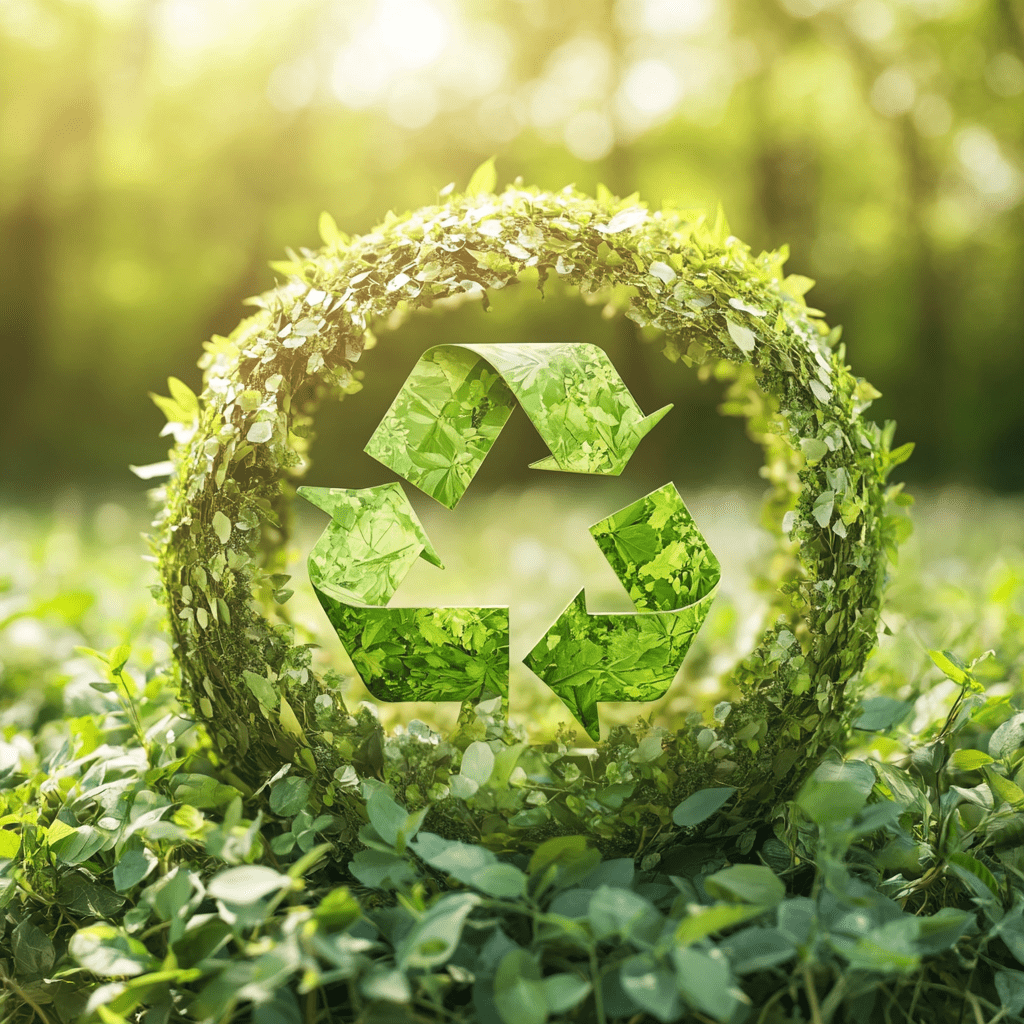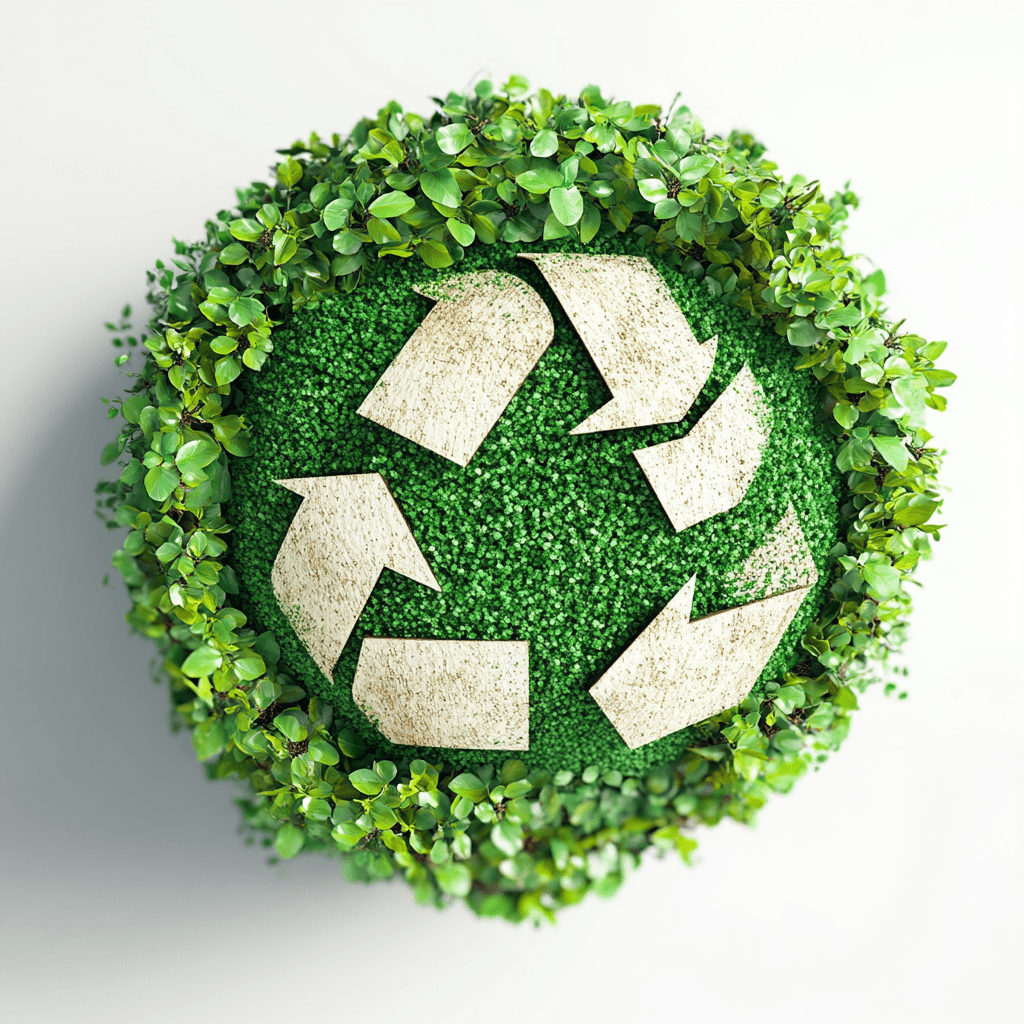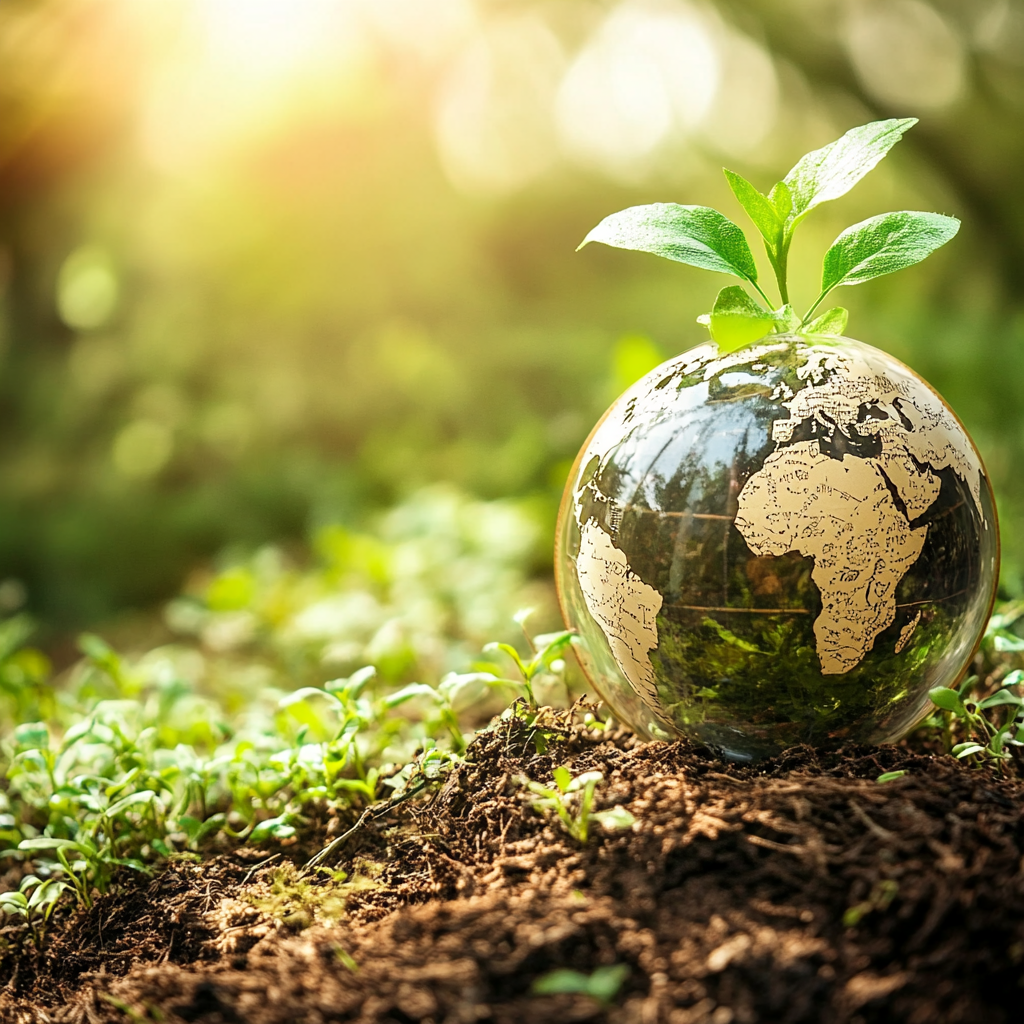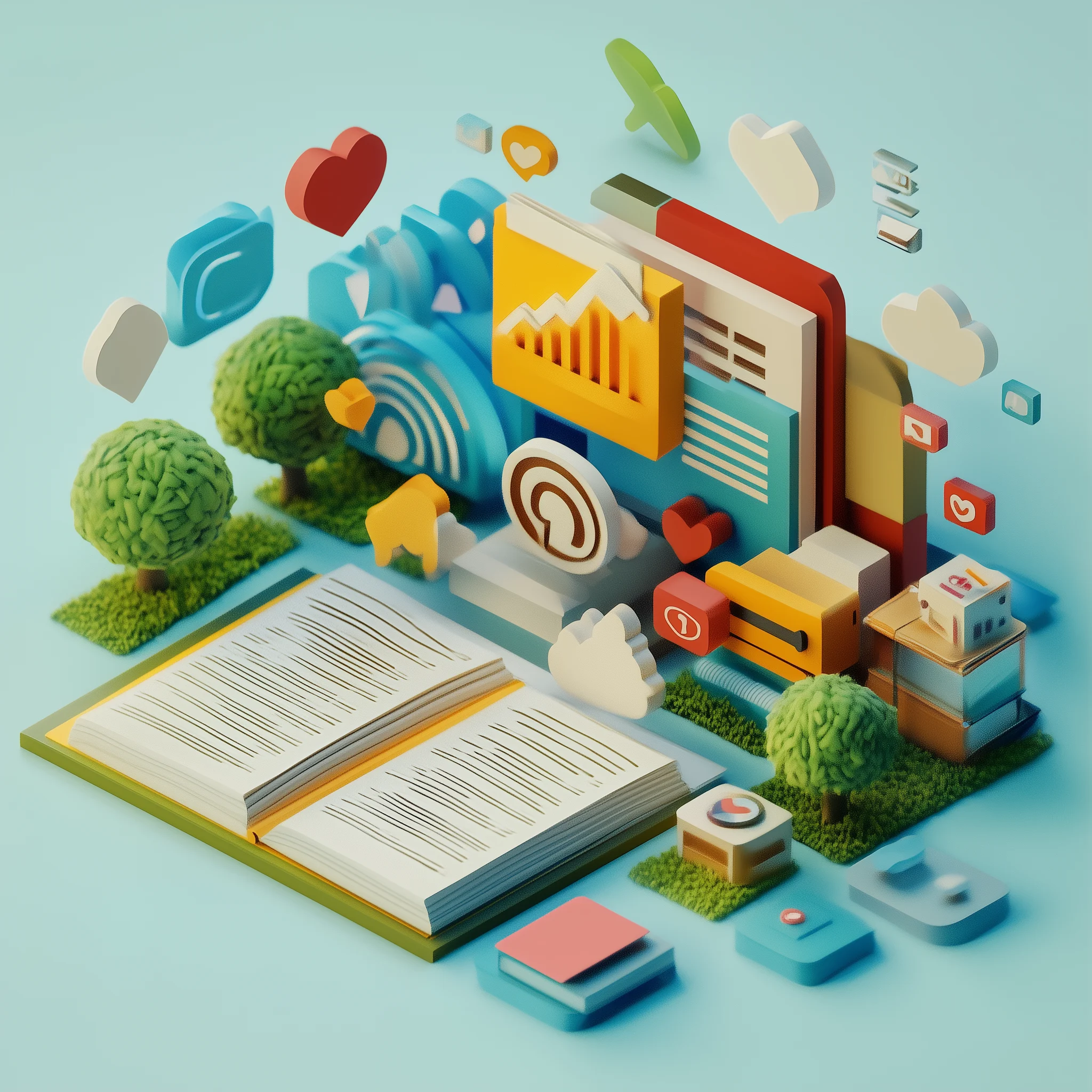Disclosure:
Some of the links on this website are affiliate links, which means that if you click on one of the links and sign up or make a purchase, we may earn a small commission at no additional cost to you. This commission helps support the maintenance and operation of this site.
We only recommend products or services that we believe will provide value to our readers. Our opinions and recommendations are based on our own research and experiences, and we strive to offer honest and unbiased content.
Please note that your support through these affiliate links is greatly appreciated, as it helps us continue to provide quality content and resources.
Thank you for your support!
As environmental concerns continue to rise, green and sustainable businesses are becoming more important than ever. These businesses focus on eco-friendly practices, reducing waste, conserving resources, and promoting renewable energy solutions while remaining profitable.
From zero-waste stores and organic grocery shops to solar energy services and sustainable farming, green businesses span multiple industries. Entrepreneurs who start these businesses not only contribute to a healthier planet but also tap into a growing market of eco-conscious consumers.
Whether you’re interested in recycling & upcycling, renewable energy, or sustainable farming, launching a green business allows you to make a positive impact while building a profitable venture.
What is a Green and Sustainable Business and Why You Should Start One?
What is a Green and Sustainable Business?
A green and sustainable business is a company that prioritizes environmental responsibility while offering products or services. These businesses focus on reducing waste, conserving energy, minimizing carbon footprints, and promoting eco-friendly solutions.
Green businesses operate in various industries, including:
- Eco-Friendly Retail → Zero-waste stores, organic grocery shops, and sustainable clothing brands.
- Renewable Energy → Solar panel installation, wind energy solutions, and geothermal consulting.
- Recycling & Upcycling → Waste management, upcycled furniture, and recycled product sales.
- Sustainable Farming → Organic farming, permaculture, vertical farming, and beekeeping.
Key Features of a Green Business:
- Uses sustainable materials and eco-friendly production methods.
- Supports ethical sourcing and fair trade practices.
- Aims to reduce waste through recycling, upcycling, or zero-waste packaging.
- Implements renewable energy solutions like solar or wind power.
- Follows eco-conscious policies to lower environmental impact.
Why Should You Start a Green and Sustainable Business?
1️. High Market Demand & Growth Potential
- Consumers are becoming more eco-conscious and actively seek sustainable products.
- Green businesses often attract premium-paying customers who value ethical brands.
- The global green economy is growing, with sectors like renewable energy and eco-friendly products booming.
Example: The demand for organic food and zero-waste products has increased significantly in the past decade.
2️. Positive Environmental & Social Impact
- Green businesses reduce pollution, conserve resources, and fight climate change.
- They often support local communities by sourcing materials ethically and creating sustainable jobs.
- Contributing to environmental conservation builds a strong brand reputation.
Example: A sustainable fashion brand that uses recycled fabrics helps reduce textile waste and pollution.
3️. Government Incentives & Grants
- Many governments offer grants, tax credits, and subsidies to eco-friendly businesses.
- Businesses in renewable energy and waste management can qualify for funding programs.
- Green certifications (e.g., LEED, Fair Trade, USDA Organic) can increase credibility and attract more customers.
Example: Solar panel installation companies often receive government rebates to promote clean energy.
4️. Competitive Advantage & Brand Loyalty
- Sustainability helps differentiate your business from competitors.
- Consumers are more loyal to brands that align with their environmental values.
- Green businesses can use eco-friendly branding to build trust and long-term customer relationships.
Example: A zero-waste store with plastic-free alternatives attracts environmentally conscious shoppers.
5️. Long-Term Cost Savings
- Sustainable practices reduce energy and material costs over time.
- Recycling and upcycling can turn waste into profit.
- Using renewable energy lowers operational costs in the long run.
Example: A business using solar energy can cut electricity costs and qualify for green tax incentives.
Starting a green and sustainable business is not just about making money—it’s about creating a positive impact on the environment and society. With growing demand, government support, and long-term cost benefits, it’s an ideal industry for forward-thinking entrepreneurs.

Pros and Cons of Starting a Green and Sustainable Business
Starting a green and sustainable business can be a rewarding and impactful endeavor, but like any business, it comes with challenges. Below is a breakdown of the pros and cons of launching an eco-friendly business in sectors like eco-friendly retail, renewable energy, recycling & upcycling, and sustainable farming.
Pros of Starting a Green and Sustainable Business
1️. Growing Consumer Demand
- More consumers are prioritizing sustainable products and services, making green businesses highly marketable.
- Eco-conscious consumers are often willing to pay premium prices for sustainable goods.
Example: Zero-waste stores are becoming more popular as consumers look for plastic-free shopping options.
2️. Positive Environmental & Social Impact
- Your business actively contributes to reducing waste, pollution, and carbon footprints.
- Many eco-businesses support local communities through ethical sourcing and fair-trade practices.
Example: Sustainable farms promote organic, chemical-free food while preserving soil health.
3️. Access to Government Incentives & Grants
- Many governments offer grants, tax breaks, and incentives for businesses promoting sustainability.
- Renewable energy businesses can benefit from solar energy credits and clean energy grants.
Example: Solar panel installation companies often receive government rebates for promoting clean energy.
4️. Competitive Differentiation & Brand Loyalty
- Being a green business can set you apart from competitors in traditional industries.
- Customers are more loyal to businesses with a strong environmental mission.
Example: Eco-friendly clothing brands attract consumers who care about fair-trade and ethical fashion.
5️. Innovative & Scalable Business Opportunities
- Many green businesses leverage new technologies like biodegradable materials, AI-powered waste management, and hydroponic farming.
- Green businesses often have multiple revenue streams, such as subscription services, government contracts, and partnerships.
Example: Vertical farming businesses can sell direct-to-consumer, grocery stores, and restaurants.
Cons of Starting a Green and Sustainable Business
1️. Higher Startup Costs
- Many sustainable businesses require high upfront investments for eco-friendly materials, technology, and certifications.
- Sourcing organic, fair-trade, or biodegradable materials can be more expensive than traditional materials.
Example: Opening a zero-waste store may require a larger initial investment than a regular grocery store due to specialized suppliers.
2️. Limited Supplier Availability
- Finding reliable and affordable eco-friendly suppliers can be challenging.
- Some industries, like sustainable packaging, are still developing, meaning limited sourcing options.
Example: If you run a recycled product store, sourcing consistent, high-quality recycled materials may be difficult.
3️. Changing Regulations & Compliance Costs
- Green businesses must comply with strict environmental laws and certifications (e.g., USDA Organic, LEED, Fair Trade).
- Getting certifications for organic, fair trade, or green building standards can be expensive and time-consuming.
Example: Organic farming businesses must meet strict agricultural standards, which require certification fees and inspections.
4️. Niche Market & Consumer Education
- Some eco-friendly products/services require educating consumers about their benefits.
- Many customers still choose cheaper non-eco-friendly alternatives, making price competition difficult.
Example: Sustainable clothing brands must convince consumers why ethical fashion is worth the higher price.
5️. Seasonal or Market Fluctuations
- Certain eco-businesses, like sustainable farming and solar energy, face seasonal variations in sales.
- Weather conditions can impact renewable energy businesses that rely on solar or wind power.
Example: A solar panel installation business may see lower demand in winter or regions with less sunlight.
Is a Green & Sustainable Business Right for You?
Green businesses are growing rapidly and provide long-term benefits for both the environment and economy. However, they require higher initial investments, consumer education, and regulatory compliance.
Who Should Start a Green Business?
- Entrepreneurs passionate about sustainability.
- Business owners willing to invest in eco-friendly materials.
- Innovators who want to disrupt traditional industries.
Starting a green and sustainable business can be both profitable and impactful, but it requires careful planning. Understanding the pros and cons will help you make informed decisions and set up a successful eco-friendly venture.
Cost Analysis of Starting a Green and Sustainable Business
Starting a green and sustainable business requires careful financial planning due to higher upfront costs for eco-friendly materials, certifications, and specialized equipment. Below is a detailed cost breakdown for various green business types, including eco-friendly retail, renewable energy, recycling & upcycling, and sustainable farming.
1️. Eco-Friendly Retail (Zero-Waste Stores, Organic Grocery, Sustainable Clothing)
Estimated Startup Costs: $25,000 – $100,000+
| Expense | Cost Estimate |
| Store Lease & Renovation | $10,000 – $50,000 |
| Inventory (Eco-friendly products) | $5,000 – $30,000 |
| Store Equipment (Shelving, POS system, packaging alternatives) | $3,000 – $10,000 |
| Website & E-Commerce Setup | $2,000 – $5,000 |
| Marketing & Branding | $2,000 – $10,000 |
| Certifications (Organic, Fair Trade) | $500 – $3,000 |
| Employee Wages (if hiring) | $2,500 – $5,000/month |
| Miscellaneous & Legal Fees | $2,000 – $7,000 |
- Key Costs: Sourcing sustainable products can be more expensive than conventional goods.
- Savings Tip: Start online before opening a physical store to reduce rent and renovation costs.
2️. Renewable Energy (Solar Panel Installation, Wind Energy Solutions, Geothermal Consulting)
Estimated Startup Costs: $50,000 – $500,000+
| Expense | Cost Estimate |
| Licensing & Certifications (NABCEP, OSHA) | $2,000 – $10,000 |
| Equipment (Solar panels, inverters, wind turbines) | $20,000 – $200,000+ |
| Office Space & Utilities | $5,000 – $20,000 |
| Vehicle for Installation Services | $15,000 – $50,000 |
| Employee Wages (Technicians, Engineers) | $5,000 – $15,000/month |
| Marketing & Website Development | $5,000 – $15,000 |
| Legal & Insurance | $3,000 – $10,000 |
| Research & Development (If innovating new tech) | $10,000 – $50,000 |
- Key Costs: Equipment and certifications are expensive but necessary for compliance.
- Savings Tip: Look for government grants and tax incentives to offset renewable energy costs.
3️. Recycling & Upcycling (Waste Management, Upcycled Furniture, Recycled Product Sales)
Estimated Startup Costs: $10,000 – $200,000+
| Expense | Cost Estimate |
| Warehouse/Storage Space | $5,000 – $30,000 |
| Machinery (Shredders, balers, compactors) | $10,000 – $100,000+ |
| Collection Vehicles (Trucks, trailers) | $15,000 – $50,000 |
| Raw Materials & Sourcing | $2,000 – $10,000 |
| Employee Wages (Collectors, Sorters, Technicians) | $3,000 – $8,000/month |
| Marketing & Branding | $2,000 – $10,000 |
| Licensing & Environmental Permits | $1,000 – $5,000 |
| Website & Online Store | $2,000 – $7,000 |
- Key Costs: Equipment and collection logistics can be costly.
- Savings Tip: Start small by partnering with local businesses for raw materials instead of buying expensive equipment upfront.
4️. Sustainable Farming (Organic Farming, Permaculture, Vertical Farming, Beekeeping)
Estimated Startup Costs: $20,000 – $500,000+
| Expense | Cost Estimate |
| Land Purchase/Lease | $10,000 – $200,000+ |
| Farming Equipment (Hydroponic systems, greenhouses, irrigation) | $5,000 – $100,000 |
| Seeds, Soil, Organic Fertilizers | $2,000 – $10,000 |
| Livestock (If applicable) | $3,000 – $20,000 |
| Employee Wages (Farmhands, Agronomists) | $2,500 – $7,000/month |
| Organic & Sustainability Certifications | $1,000 – $5,000 |
| Packaging & Distribution | $2,000 – $10,000 |
| Website & Online Sales Platform | $2,000 – $7,000 |
- Key Costs: Land and equipment for sustainable agriculture are major expenses.
- Savings Tip: Start with smaller-scale operations like urban farming, hydroponics, or CSA (Community-Supported Agriculture) models before expanding.
Additional Costs for All Green Businesses
Regardless of your specific industry, here are some universal costs for any green business:
| Expense | Cost Estimate |
| Business Registration & Licenses | $500 – $5,000 |
| Accounting & Legal Fees | $1,000 – $5,000 |
| Marketing & Social Media Advertising | $2,000 – $10,000 |
| Insurance (Liability, Equipment) | $1,500 – $7,000/year |
| Employee Wages & Benefits | $2,500 – $15,000/month |
Is a Green Business Affordable?
Lower-Cost Green Businesses ($10,000 – $50,000)
- Online zero-waste store
- Small-scale upcycling business
- Beekeeping and honey production
Mid-Range Green Businesses ($50,000 – $200,000)
- Solar panel installation
- Small-scale organic farm
- Eco-friendly product manufacturing
High-Investment Green Businesses ($200,000 – $500,000+)
- Large-scale sustainable farming
- Wind energy consulting
- Recycling facility with industrial equipment
Starting a green and sustainable business can be capital-intensive but offers long-term profitability, government incentives, and positive environmental impact.
Essential Tools & Supplies for Starting a Green and Sustainable Business
Starting a green and sustainable business requires specialized tools, equipment, and supplies that align with eco-friendly practices. Below is a list of must-have tools and resources based on different types of green businesses:
1️. Eco-Friendly Retail (Zero-Waste Stores, Organic Grocery, Sustainable Clothing)
Key Focus: Sustainable packaging, ethically sourced products, and minimal waste.
Tools & Supplies:
- Biodegradable Packaging – Compostable bags, paper wrappers, glass jars.
- Sustainable Inventory – Organic groceries, fair-trade clothing, reusable household items.
- Point-of-Sale (POS) System – Shopify, Square, or Lightspeed for eco-friendly transactions.
- Weighing Scales – Essential for bulk zero-waste stores.
- Energy-Efficient Lighting – LED bulbs and solar-powered lighting.
- Reusable Labels & Signage – Chalkboard tags, digital price displays.
- E-commerce Website & Online Store – WooCommerce, Shopify, or BigCommerce for online sales.
Bonus Tip: Use upcycled furniture for shelving and displays to reduce environmental impact.
2️. Renewable Energy (Solar Panel Installation, Wind Energy Solutions, Geothermal Consulting)
Key Focus: Providing clean energy solutions for residential and commercial clients.
Tools & Supplies:
- Solar Panels & Inverters – Tier 1 solar panels (e.g., Tesla, SunPower).
- Battery Storage Systems – Lithium-ion batteries (e.g., Tesla Powerwall).
- Wind Turbines – Small-scale turbines for residential and commercial use.
- Geothermal Heat Pumps – Essential for geothermal energy systems.
- Solar Panel Installation Tools – Drills, wrenches, safety harnesses.
- Multimeter & Thermal Imaging Camera – For electrical system testing.
- Electric Vehicle (EV) Charging Equipment – For setting up EV charging stations.
- Design Software – PVsyst, Helioscope, or HOMER Energy for solar system modeling.
Bonus Tip: Look for government rebates and tax incentives to offset initial costs.
3️. Recycling & Upcycling (Waste Management, Upcycled Furniture, Recycled Product Sales)
Key Focus: Converting waste materials into reusable products.
Tools & Supplies:
- Recycling Bins & Collection Containers – For sorting waste materials.
- Shredders & Balers – Compress and process recyclables (paper, plastic, metals).
- 3D Printers for Upcycling – Create new products from recycled plastics.
- Power Tools (Saws, Sanders, Drills) – For furniture upcycling.
- Eco-Friendly Paints & Finishes – VOC-free paints for refinishing furniture.
- Industrial Composting Machines – For organic waste recycling businesses.
- Logistics Software – Route optimization for waste collection services.
- Online Marketplace (Etsy, Shopify, eBay) – For selling upcycled products.
Bonus Tip: Partner with local businesses for discarded materials to reduce sourcing costs.
4️. Sustainable Farming (Organic Farming, Permaculture, Vertical Farming, Beekeeping)
Key Focus: Environmentally friendly food production and sustainable agriculture.
Tools & Supplies:
- Organic Seeds & Soil Amendments – Non-GMO seeds, compost, biofertilizers.
- Hydroponic & Vertical Farming Systems – LED grow lights, nutrient solutions.
- Drip Irrigation System – Saves water and improves plant health.
- Solar-Powered Greenhouse – Uses renewable energy for climate control.
- Beekeeping Equipment – Hives, protective gear, honey extractors.
- Permaculture Design Tools – Permaculture planning software, soil testers.
- Composting Equipment – Worm composting bins, organic waste processors.
- Online Store or CSA Platform – Sell farm products directly to consumers.
Bonus Tip: Utilize regenerative farming techniques to restore soil health and increase sustainability.
5️. General Tools for All Green Businesses
No matter which type of sustainable business you start, these tools are universally useful:
- Business Website & E-Commerce Platform – WordPress, Shopify, or Squarespace.
- Sustainable Business Certifications – Fair Trade, USDA Organic, LEED.
- Accounting & Inventory Management Software – QuickBooks, Xero, or Zoho Inventory.
- Marketing Tools – Canva (graphics), Buffer (social media), Mailchimp (email marketing).
- Eco-Friendly Office Supplies – Recycled paper, biodegradable pens, solar-powered chargers.
- Electric or Hybrid Vehicles – For delivery, installations, or farm use.
Starting a green and sustainable business requires specialized tools and eco-conscious resources, but the long-term benefits include reduced costs, environmental impact, and customer loyalty. Whether you’re selling zero-waste products, installing solar panels, recycling materials, or farming organically, investing in sustainable tools and equipment will set your business up for success.

Step-by-Step Guide to Starting a Green and Sustainable Business
As consumers and businesses shift toward eco-conscious choices, starting a green and sustainable business is not only profitable but also beneficial for the planet. Whether you’re interested in eco-friendly retail, renewable energy, recycling, or sustainable farming, this step-by-step guide will help you launch a successful sustainable business.
Step 1: Choose Your Green Business Idea
The first step is deciding what type of sustainable business you want to start. Here are four eco-friendly business categories to consider:
1️. Eco-Friendly Retail
- Zero-waste stores → Sell plastic-free, biodegradable, and reusable household goods.
- Organic grocery stores → Provide locally sourced, pesticide-free food.
- Eco-friendly clothing boutiques → Sell sustainable fashion made from organic or recycled materials.
- Sustainable packaging → Offer compostable or reusable packaging solutions.
2️. Renewable Energy
- Solar panel installation → Help businesses and homeowners switch to solar power.
- Wind energy solutions → Provide small-scale wind turbines for homes and businesses.
- Geothermal energy consulting → Educate businesses about harnessing geothermal energy.
3️. Recycling & Upcycling
- Waste management services → Offer recycling collection or composting services.
- Upcycled furniture → Transform discarded items into high-quality furniture.
- Recycled product sales → Sell products made from post-consumer materials.
4️. Sustainable Farming
- Organic farming → Grow and sell pesticide-free produce.
- Permaculture → Create self-sustaining agricultural ecosystems.
- Vertical farming & hydroponics → Grow crops indoors with minimal water and land use.
- Beekeeping → Sell honey and support pollination efforts.
Tip: Choose a niche that aligns with your passion, skills, and budget.
Step 2: Conduct Market Research
Identify Your Target Audience
Determine who will buy your products or services. Ask:
- Are my customers individuals, businesses, or both?
- What problems does my green business solve?
- How much are customers willing to pay for sustainable products/services?
Analyze Competitors
- Look at successful eco-friendly brands.
- Study their pricing, marketing, and customer reviews.
- Find ways to differentiate your business (e.g., offering local delivery or subscription services).
Tip: Use tools like Google Trends, SEMrush, and social media polls to gather insights.
Step 3: Develop a Business Plan
A solid business plan helps attract investors and keeps your business on track. Include:
- Business Name & Branding → Choose a name that reflects sustainability (e.g., “Green Haven Market”).
- Mission Statement → Define how your business helps the environment.
- Products/Services → List what you’ll offer (e.g., solar panel installation or upcycled clothing).
- Pricing Strategy → Research market rates and set competitive but profitable prices.
- Startup Costs & Budget → Estimate expenses (see Step 6 for cost breakdown).
- Marketing Plan → Detail how you’ll reach eco-conscious customers.
- Operational Plan → Explain daily operations, suppliers, and logistics.
Tip: Use LivePlan or SBA.gov templates to structure your plan.
Step 4: Register & Legalize Your Business
Choose a Business Structure
- Sole Proprietorship → Easiest to start but offers no legal protection.
- LLC (Limited Liability Company) → Protects personal assets and is ideal for small businesses.
- Corporation → Best for large-scale businesses seeking investors.
Register Your Business
- File your business name with the state government.
- Get an EIN (Employer Identification Number) for taxes.
- Apply for necessary permits (especially for food sales or energy installations).
Tip: Use LegalZoom or your local business bureau for help.
Step 5: Source Sustainable Materials & Partners
Choose eco-friendly suppliers and partners that align with your sustainability goals.
- For Eco-Friendly Retail: Find organic, fair-trade, and recycled materials.
- For Renewable Energy: Partner with certified solar panel or wind turbine suppliers.
- For Recycling & Upcycling: Connect with local waste collection agencies or scrap suppliers.
- For Sustainable Farming: Source heirloom seeds, compost, and eco-friendly packaging.
Tip: Use platforms like GreenDropShip or EcoEnclose for sourcing sustainable materials.
Step 6: Calculate Your Startup Costs
Your startup costs will vary depending on your business type. Below are estimated costs:
| Business Type | Startup Costs | Monthly Expenses |
| Zero-Waste Store | $10,000 – $50,000 | $2,000 – $5,000 |
| Solar Panel Installation | $15,000 – $50,000 | $3,000 – $10,000 |
| Upcycled Furniture | $5,000 – $20,000 | $1,000 – $3,000 |
| Organic Farming | $10,000 – $100,000 | $3,000 – $10,000 |
Tip: Apply for green business grants and low-interest eco-loans to fund your startup.
Step 7: Set Up Your Green Business Online & Offline
Create a Professional Website
Your website should:
- Highlight your eco-friendly mission.
- Offer online shopping (if applicable).
- Include customer testimonials and success stories.
Best website platforms:
- Shopify → For online retail.
- WordPress → For blogs & service-based businesses.
- Wix → For simple business websites.
Set Up Social Media & Marketing
Use Instagram, TikTok, and LinkedIn to promote sustainability efforts.
- Post educational content (e.g., “5 Benefits of Solar Energy”).
- Collaborate with eco-friendly influencers.
- Use SEO to attract organic traffic.
Tip: Use Google My Business to get local search visibility.
Step 8: Start Selling & Growing
Launch Your Business
- Host a launch event (virtual or in-person).
- Offer discounts or free trials to attract customers.
- Encourage customer reviews to build credibility.
Scale Your Business
- Expand to new markets (e.g., wholesale, corporate clients).
- Offer subscription services (e.g., eco-friendly product boxes).
- Apply for sustainability certifications (e.g., B Corp, Fair Trade, USDA Organic).
Tip: Stay updated on eco-friendly trends and adapt to market changes.
Final Thoughts
Starting a green and sustainable business is not only financially rewarding but also environmentally impactful. Whether you’re selling zero-waste products, renewable energy solutions, or organic foods, following these 8 steps will set you up for success.
FAQ for Green and Sustainable Businesses
1. What are eco-friendly retail businesses?
Eco-friendly retail businesses focus on providing sustainable products that are environmentally friendly. This includes zero-waste stores, organic grocery stores, eco-friendly clothing boutiques, and businesses that offer sustainable packaging. These businesses prioritize products that are free from harmful chemicals, promote fair trade, and reduce environmental impact.
2. How can I start a zero-waste store?
To start a zero-waste store, you’ll need to focus on selling products with minimal to no packaging, encourage reusable alternatives, and stock eco-friendly items like bamboo toothbrushes, refillable cleaning products, and bulk food options. You’ll also need to educate your customers on sustainability and the importance of reducing waste.
3. What is renewable energy, and how can I be part of it?
Renewable energy refers to energy sourced from natural processes that are continuously replenished, such as solar, wind, and geothermal energy. Businesses in this sector can include solar panel installation companies, wind energy solutions providers, and geothermal energy consulting services. To get involved, consider setting up a company that offers installation or maintenance services, or becoming a consultant who helps businesses transition to renewable energy sources.
4. What is upcycling, and why is it important?
Upcycling is the process of taking discarded materials or products and turning them into something of higher value or utility. Examples include creating upcycled furniture or selling products made from recycled materials. It helps reduce waste by giving old products a second life, which can significantly decrease environmental impact.
5. How can I start a recycling business?
A recycling business can include services like waste management, recycling collections, or even creating new products from recycled materials. You can also explore selling upcycled products, such as furniture or home decor, made from discarded items. For this, you’ll need to set up a collection system, develop partnerships with recycling centers, and market the environmental benefits of your service.
6. What is sustainable farming?
Sustainable farming refers to farming practices that prioritize the health of the environment, economy, and community. It includes organic farming, permaculture, vertical farming, hydroponics, and even beekeeping. These methods help conserve resources, improve soil health, and produce food in a way that is beneficial to the planet.
7. What is organic farming?
Organic farming avoids synthetic fertilizers, pesticides, and genetically modified organisms. It focuses on the health of the soil, the ecosystem, and the long-term sustainability of farming practices. If you’re interested in starting an organic farm, you’ll need to focus on using natural methods of pest control, crop rotation, and building soil fertility through compost and organic matter.
8. What is vertical farming, and how does it work?
Vertical farming is the practice of growing crops in stacked layers or vertically inclined surfaces. This type of farming can be especially effective in urban areas with limited space and can use significantly less water than traditional farming methods. It’s often combined with hydroponics, where plants are grown in a nutrient-rich water solution instead of soil.
9. How can I start a beekeeping business?
Beekeeping is an environmentally friendly practice that helps pollinate plants and produce honey. To start a beekeeping business, you’ll need to acquire the right equipment, such as hives, bee suits, and tools for honey harvesting. You’ll also need to understand bee behavior and ensure you are following sustainable practices to support healthy bee populations.
10. How do I promote my green and sustainable business?
Promote your green business by emphasizing your environmental impact and commitment to sustainability. Use eco-friendly marketing materials, engage in community events, and build a strong online presence highlighting your values. Offering transparency in your sourcing and operations can also build trust with eco-conscious consumers.
More on Green and Sustainable Businesses here.




